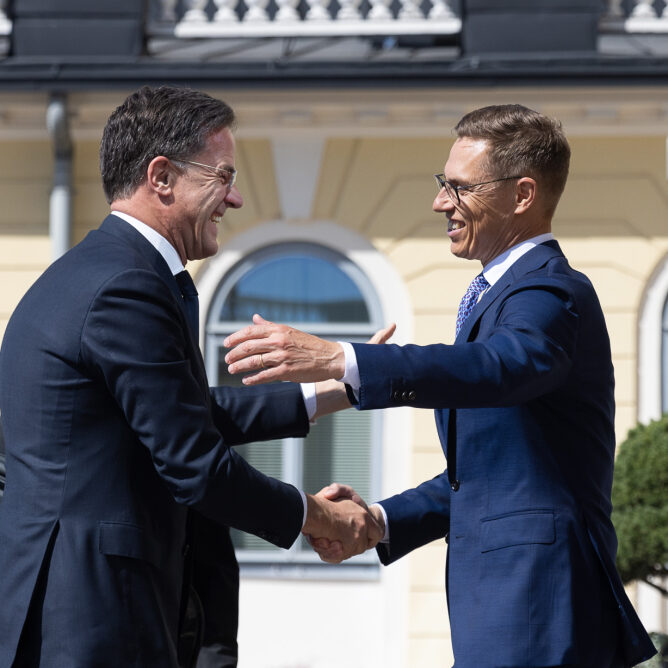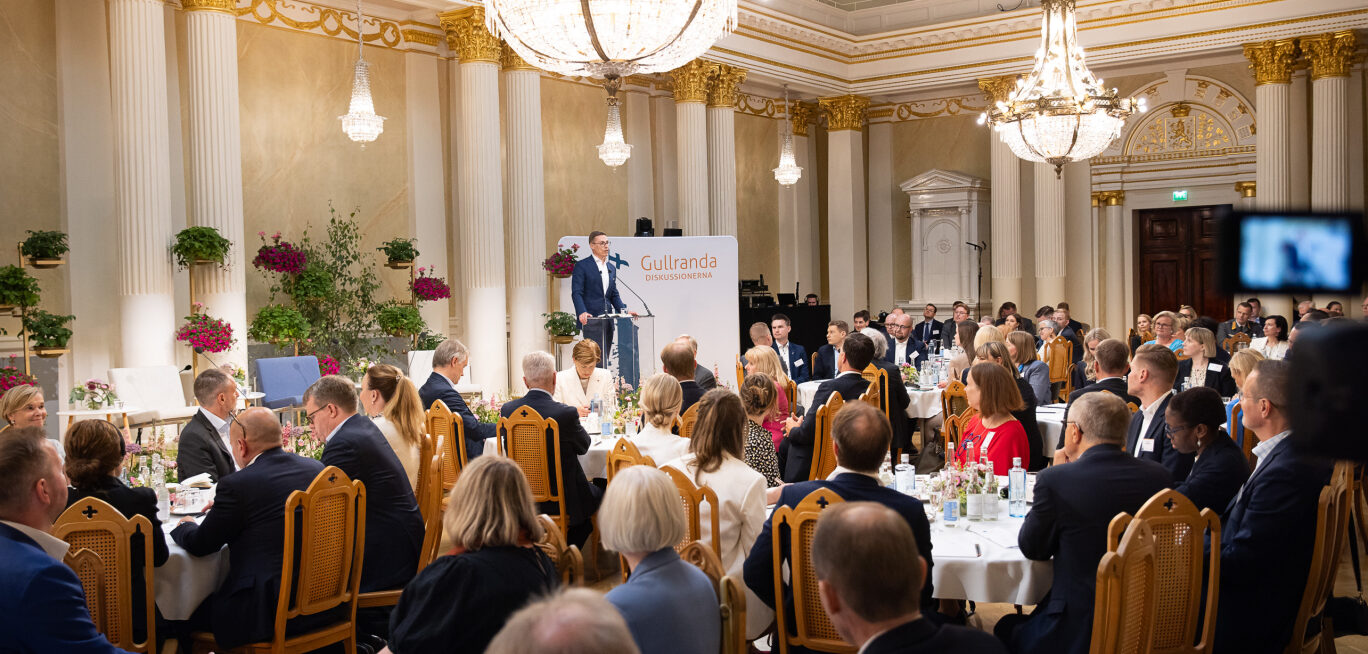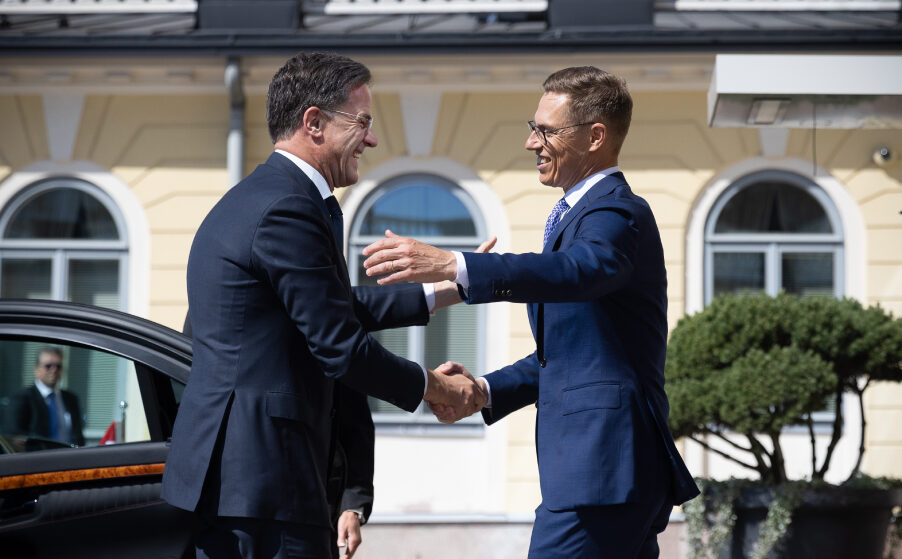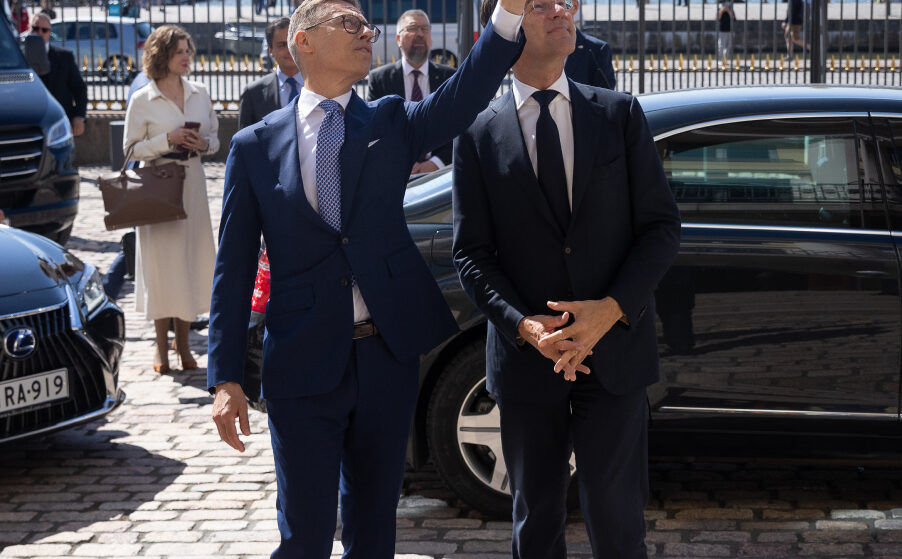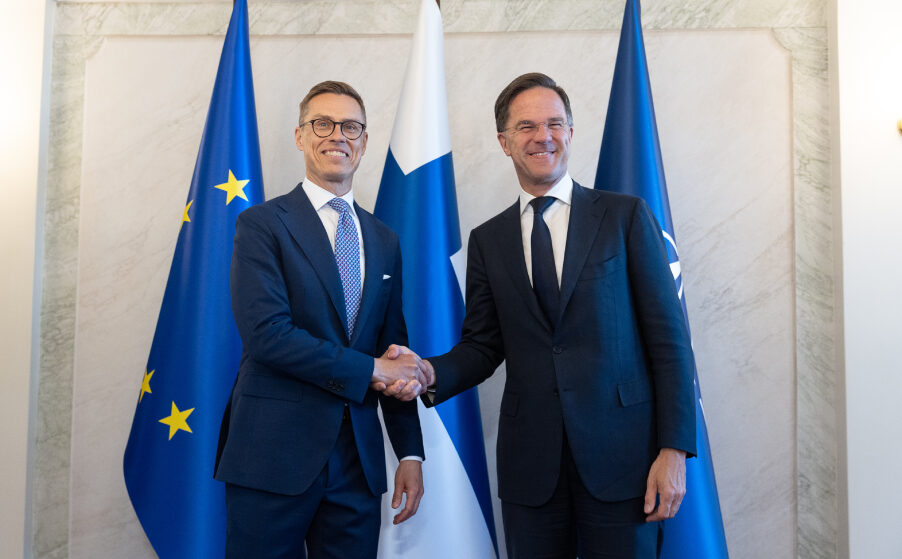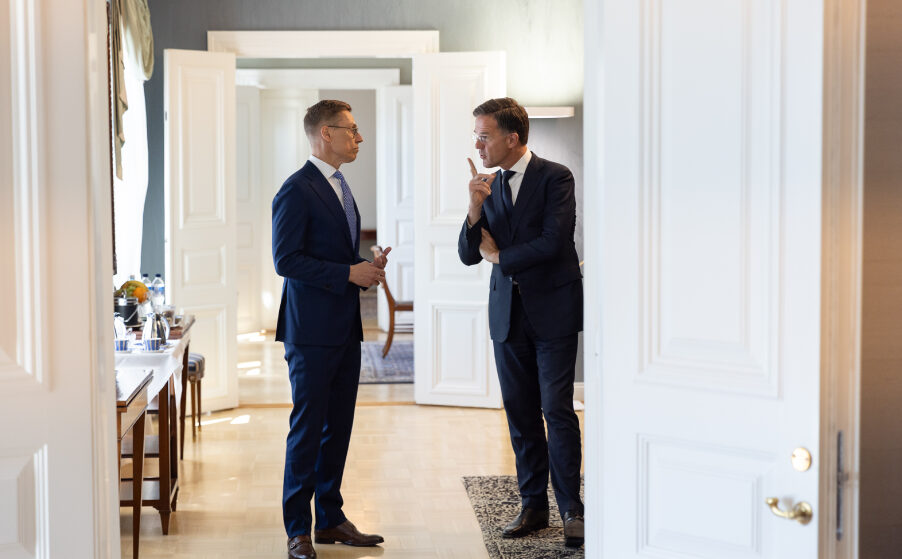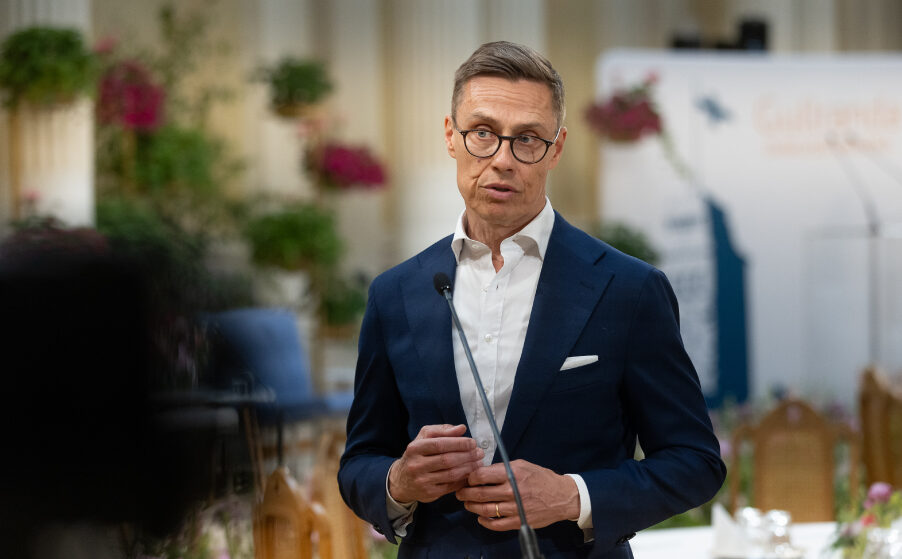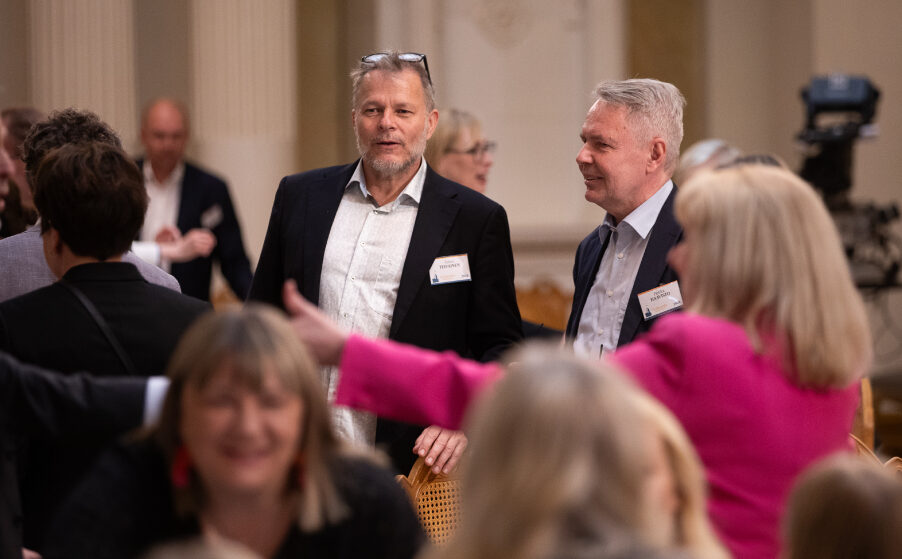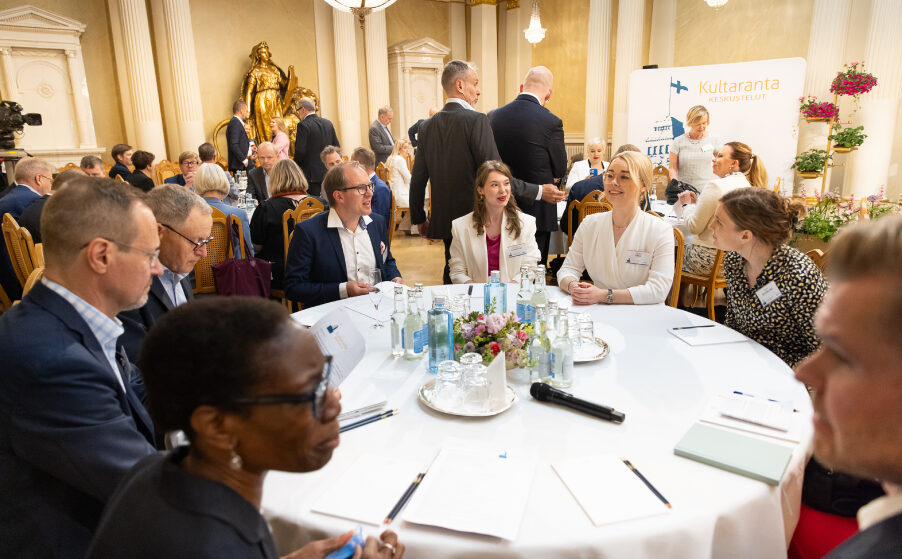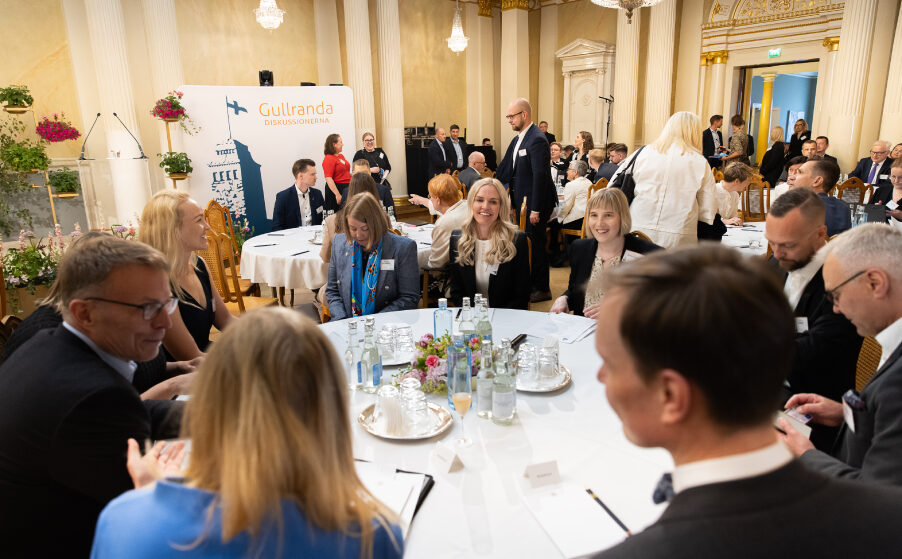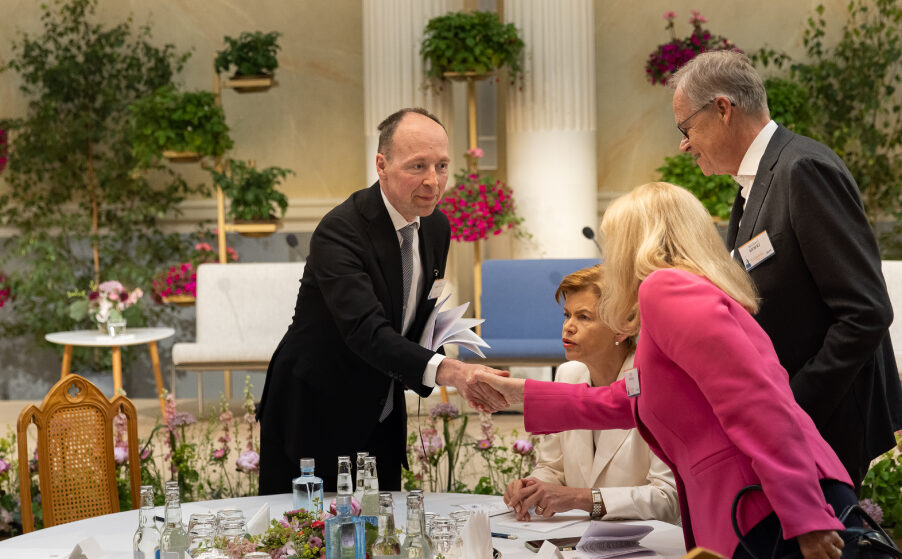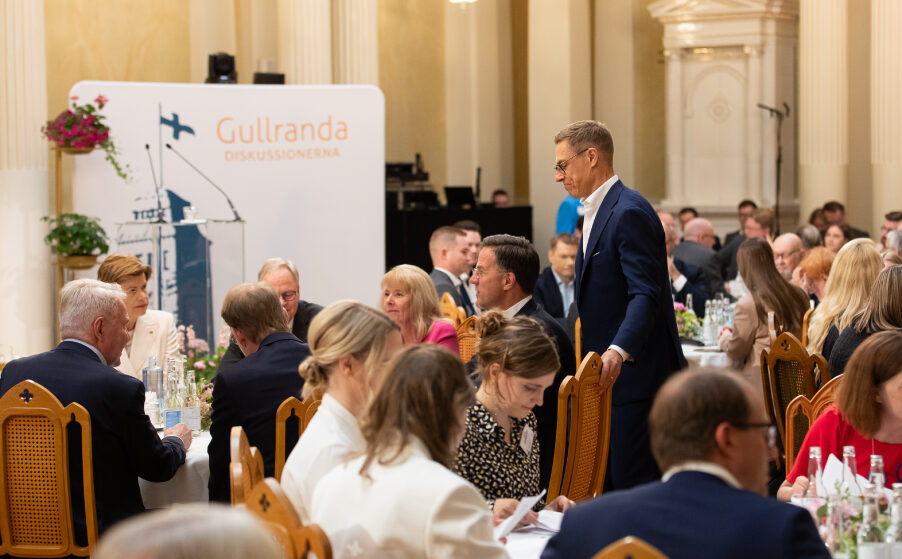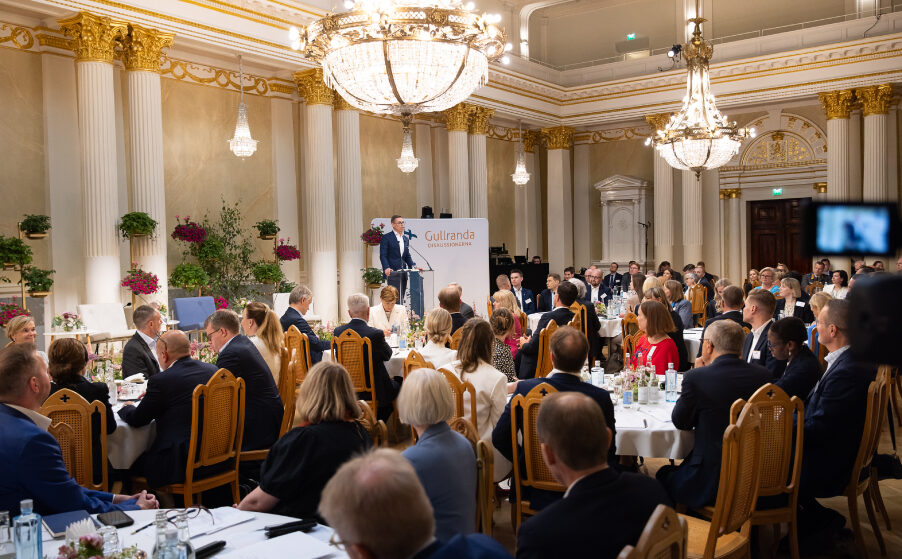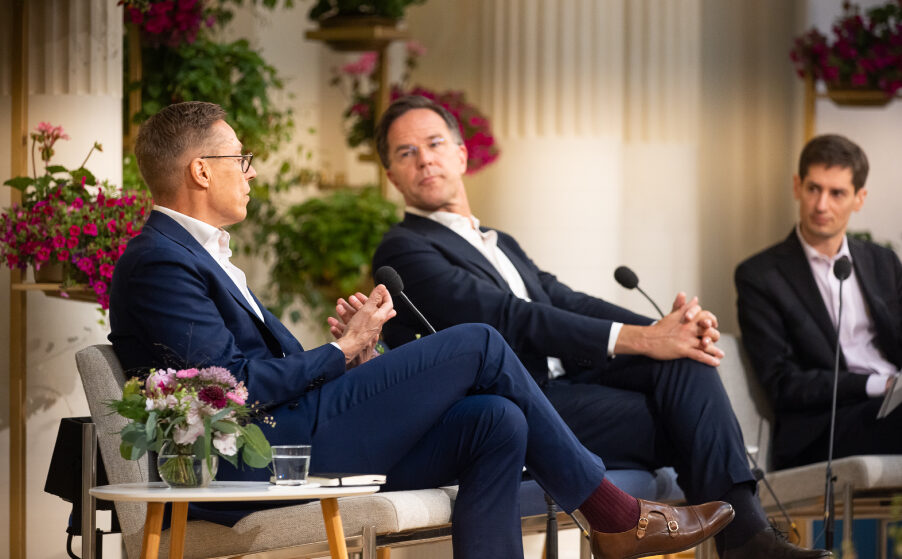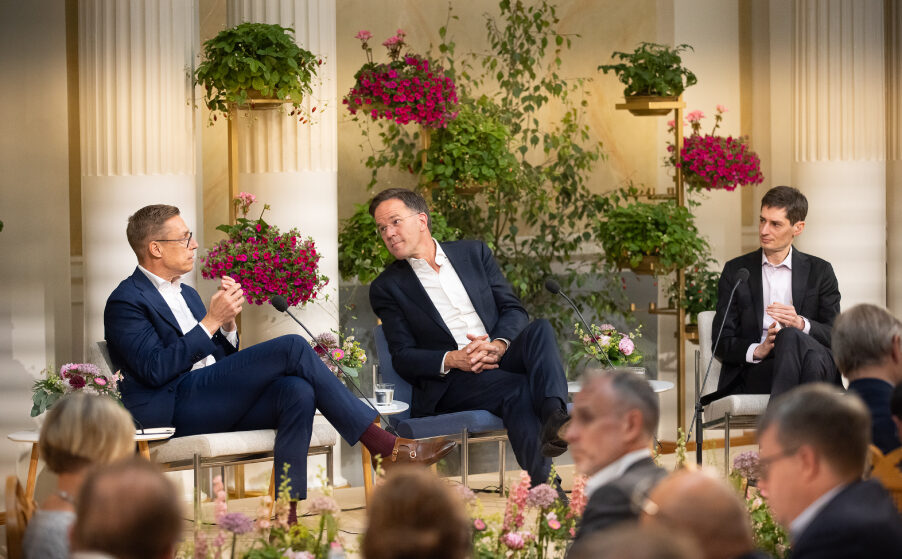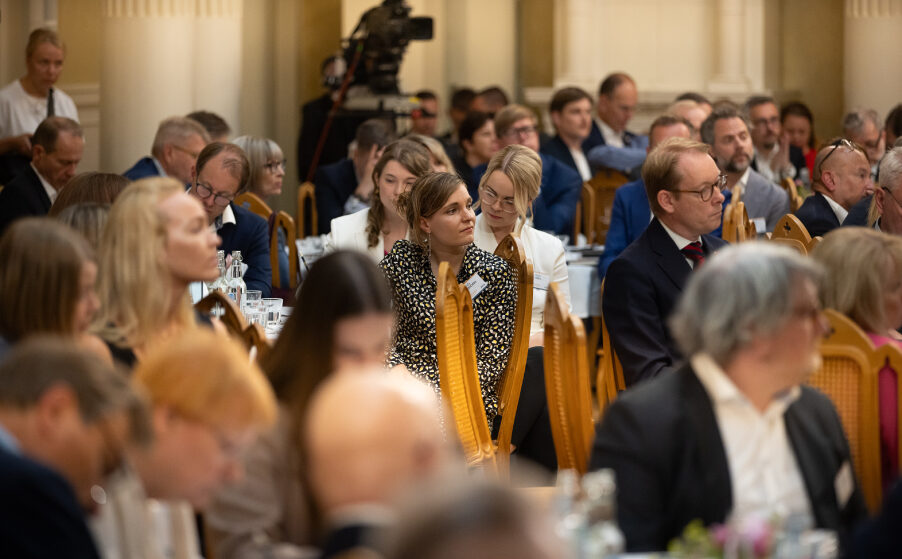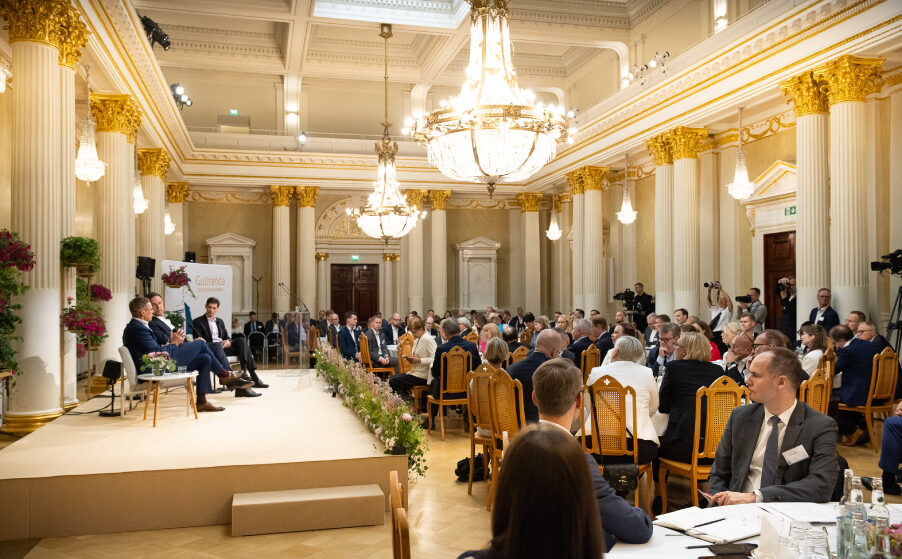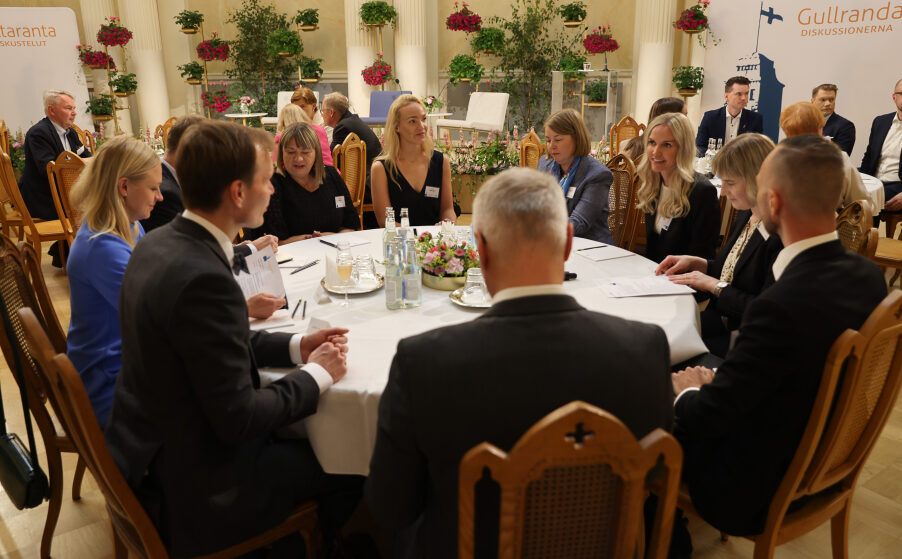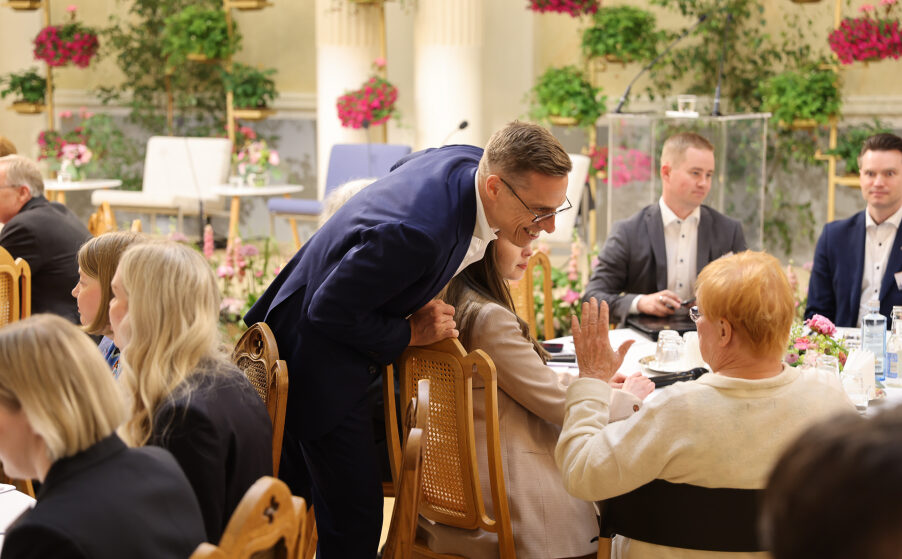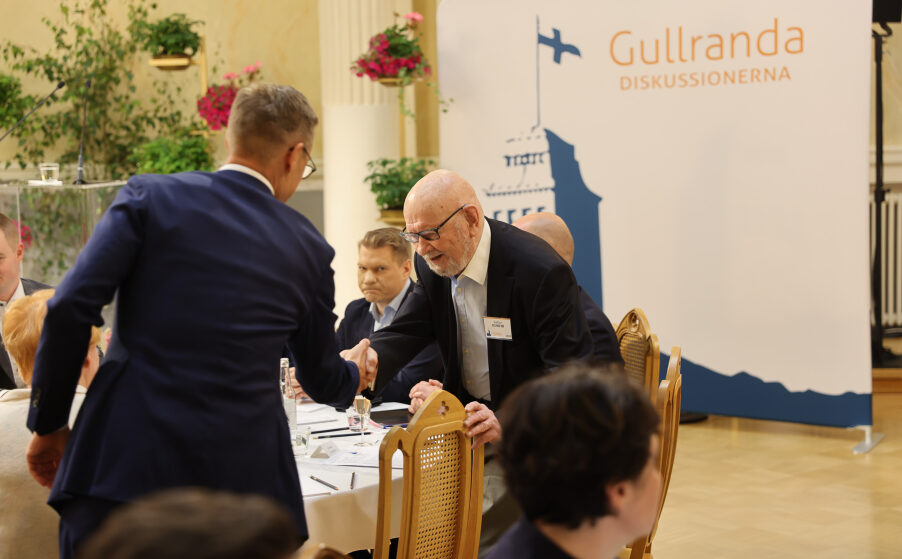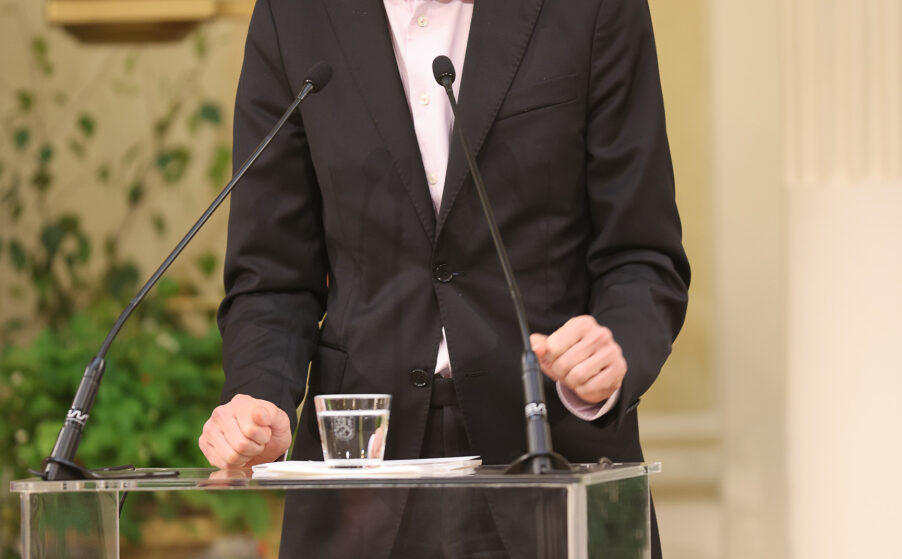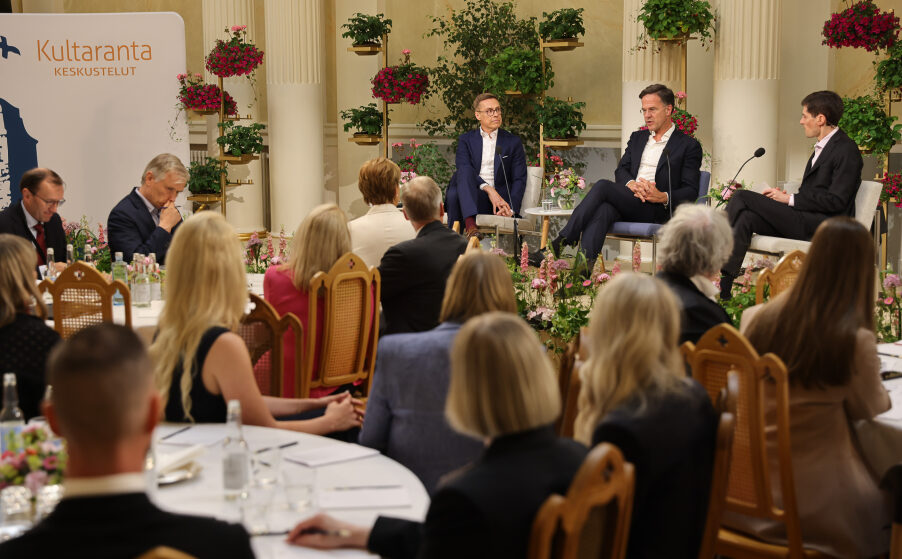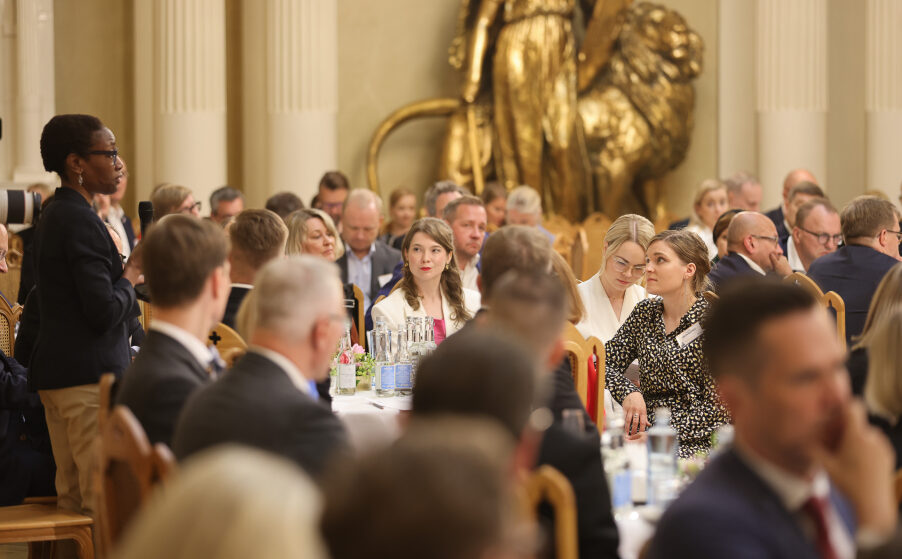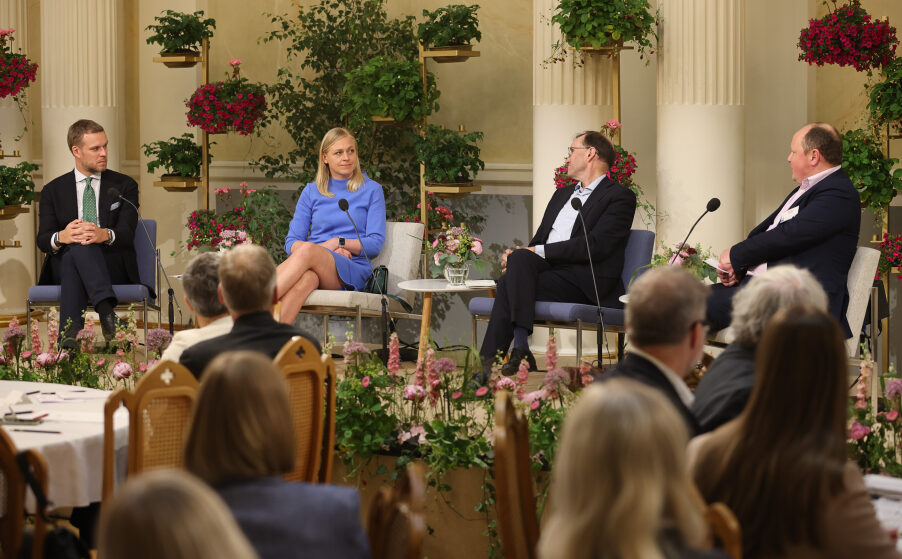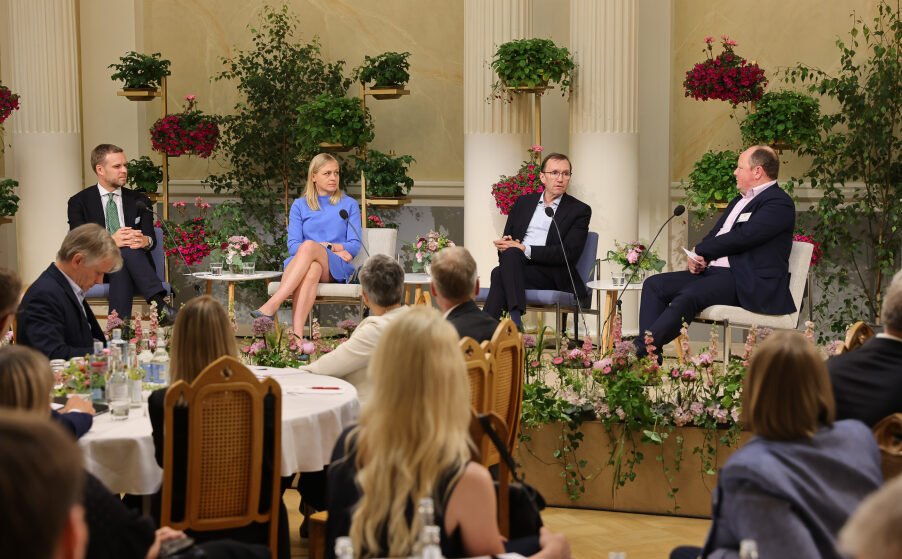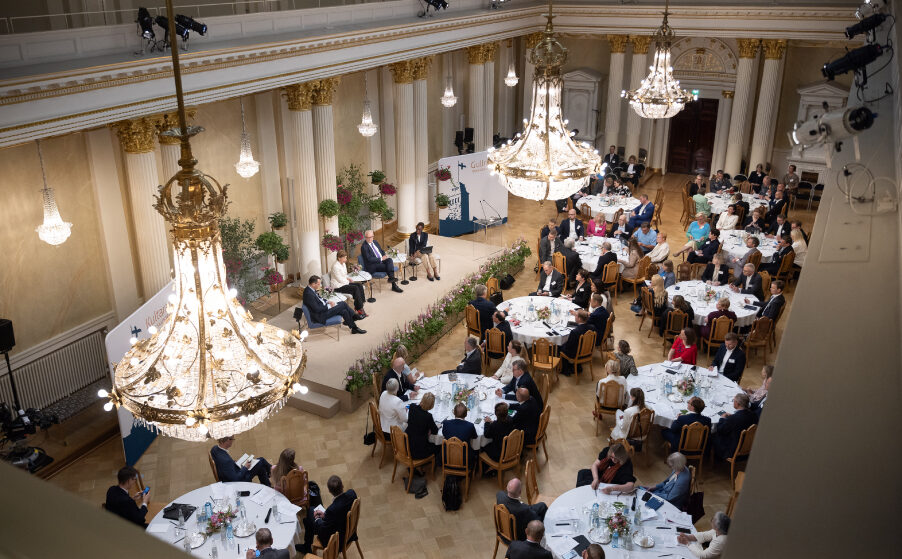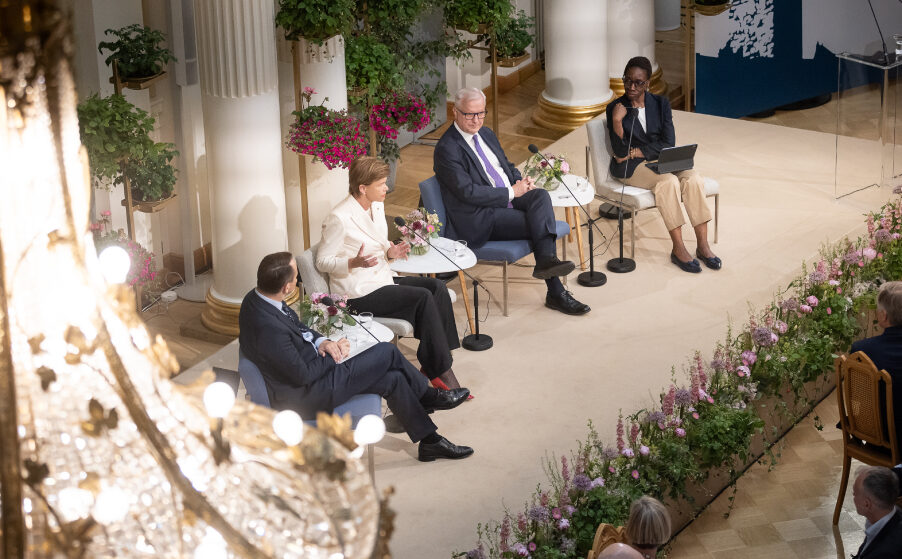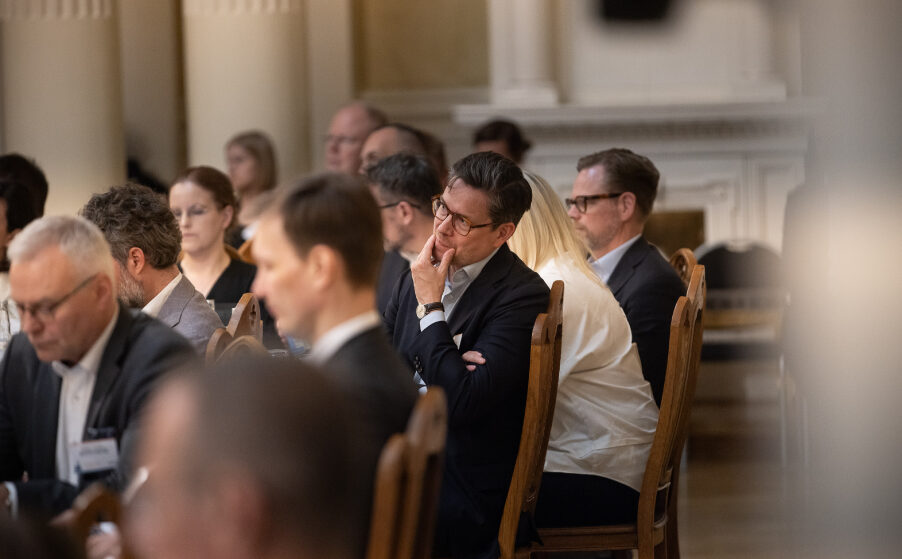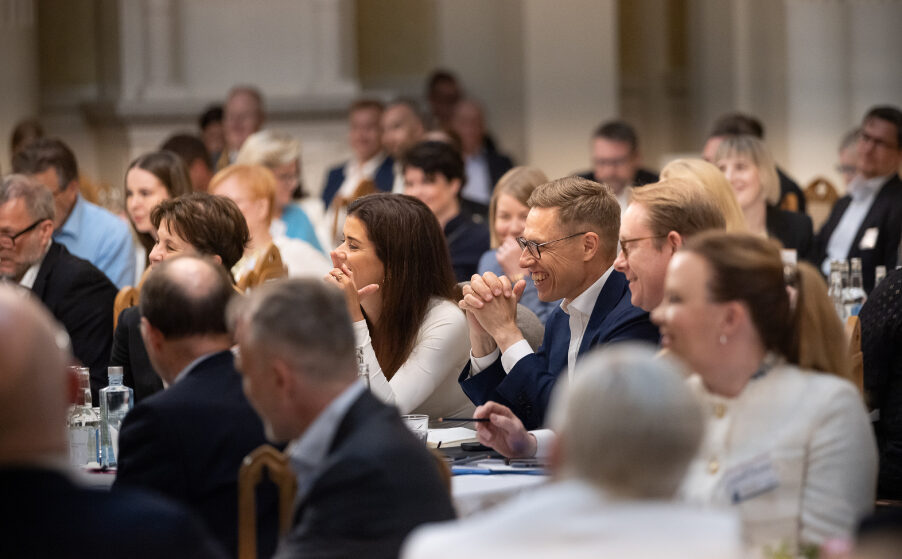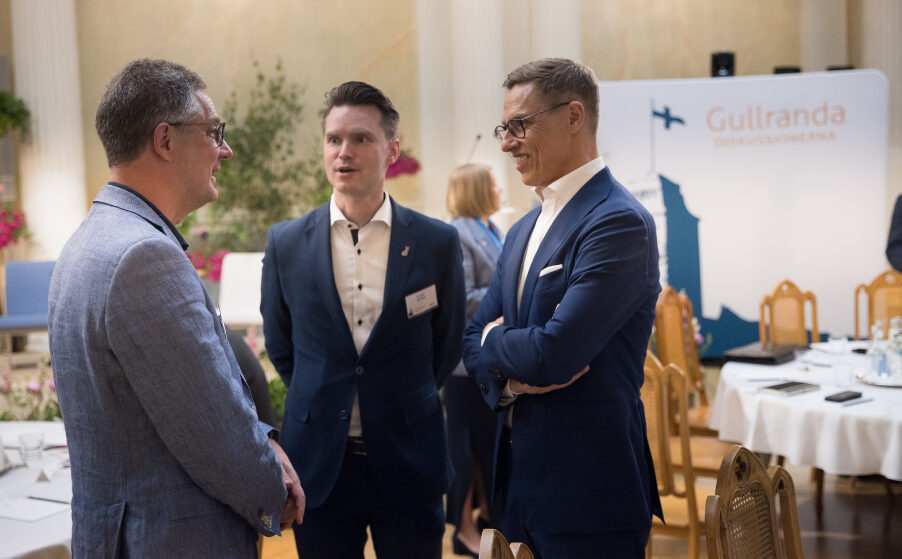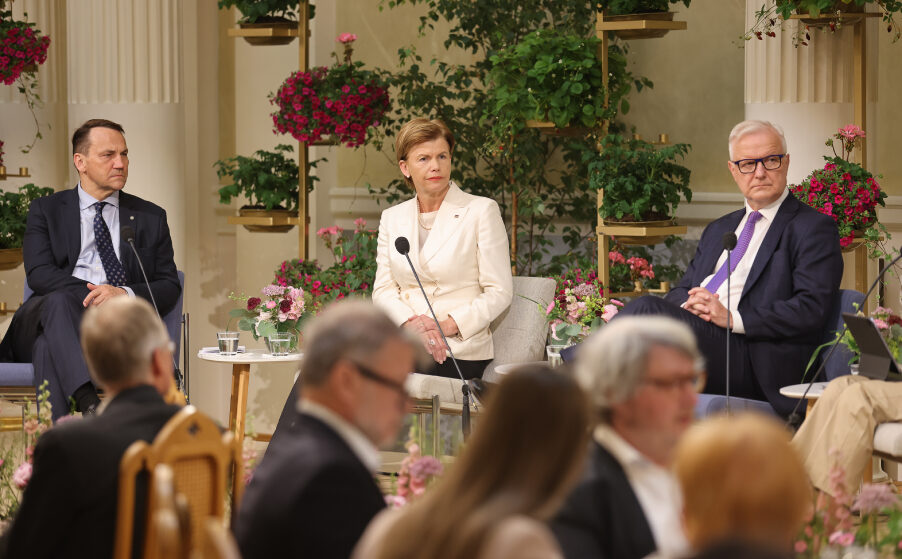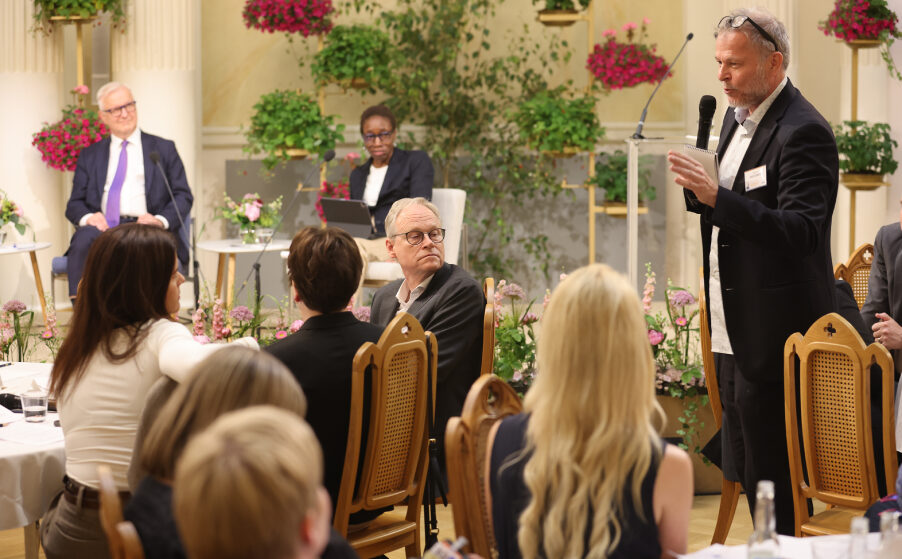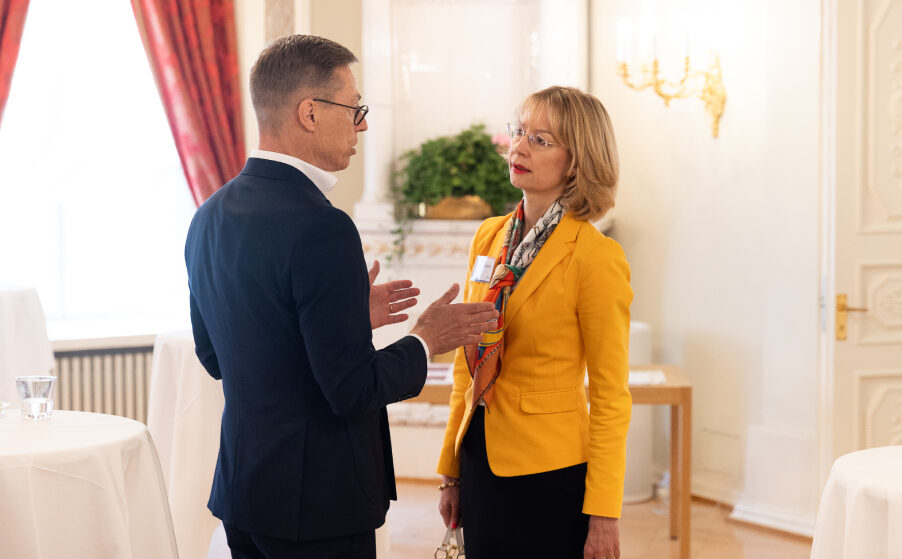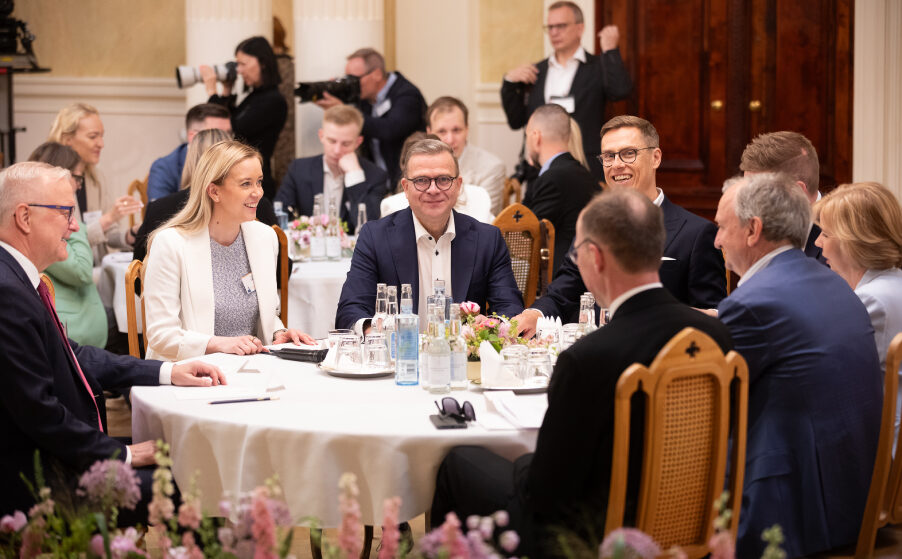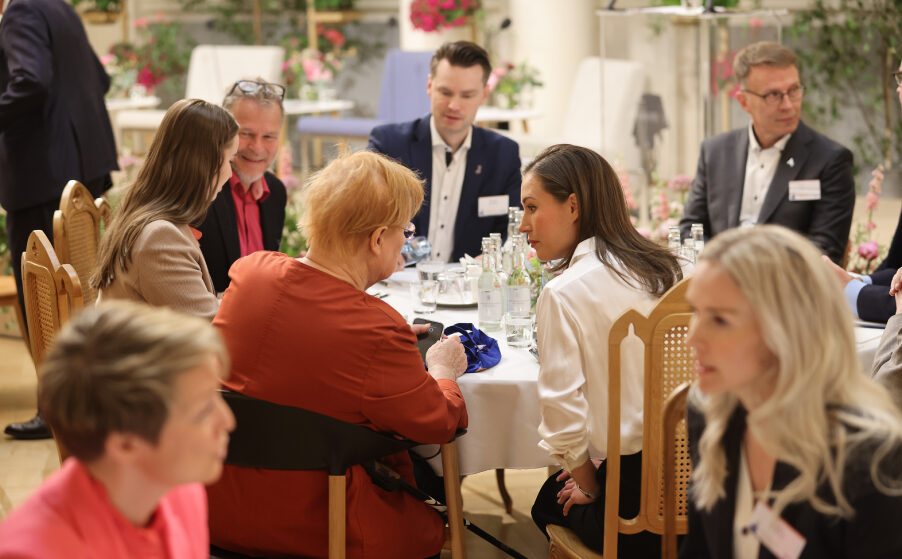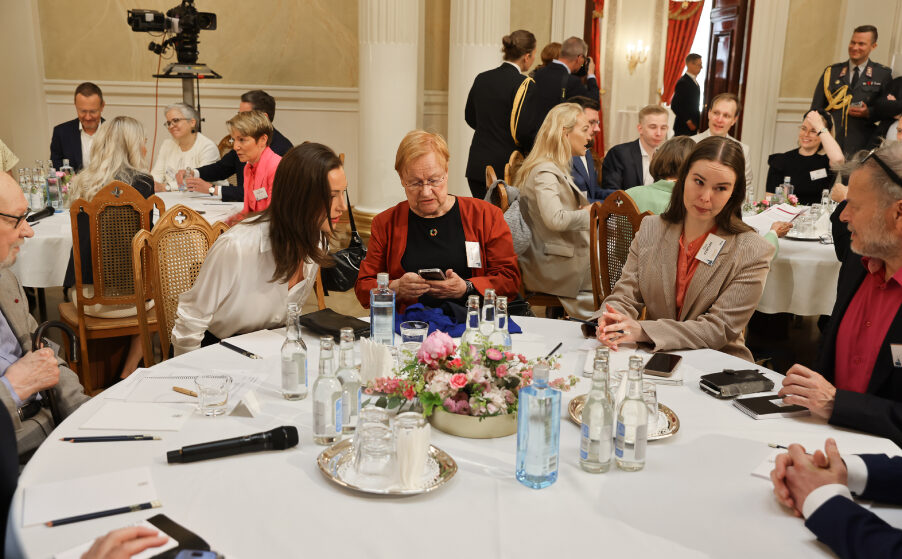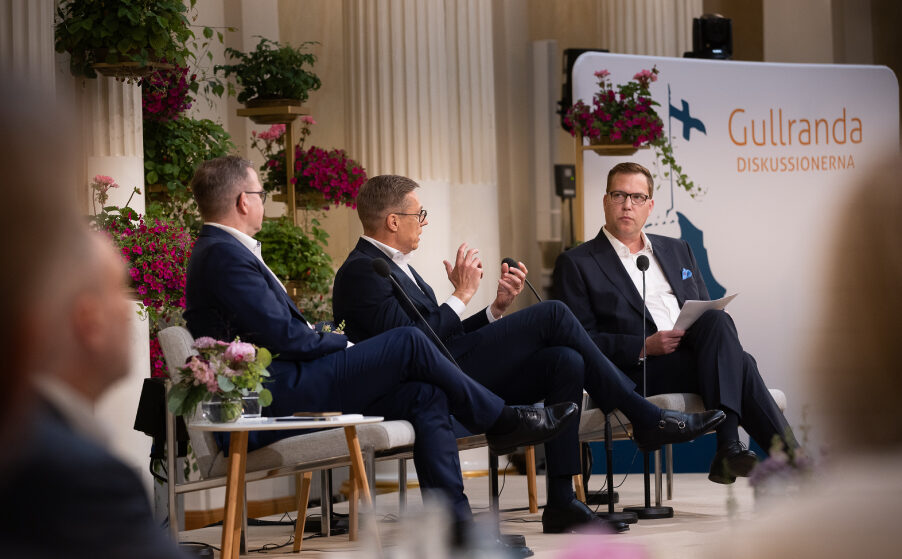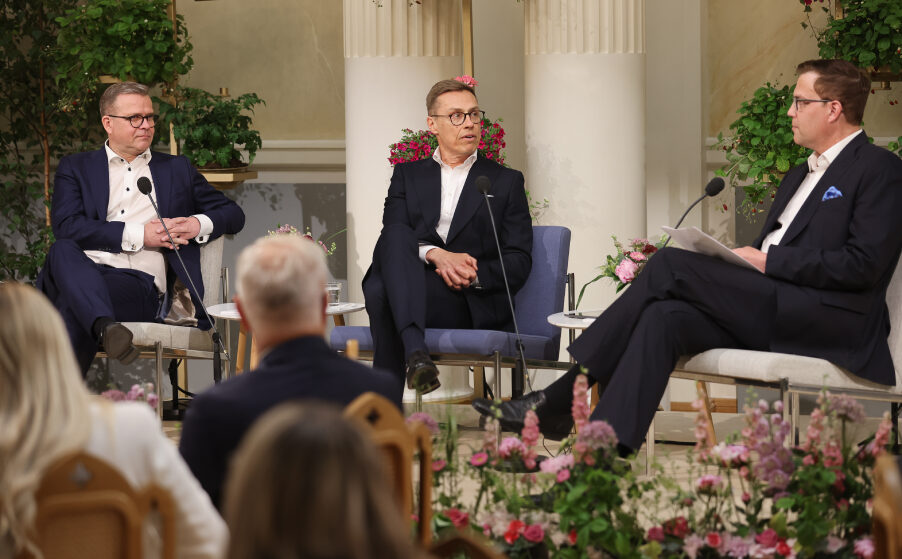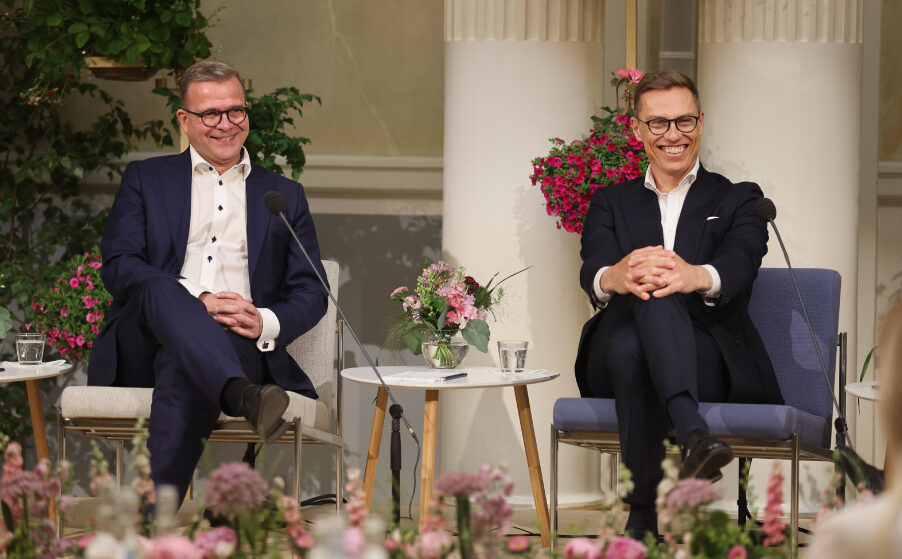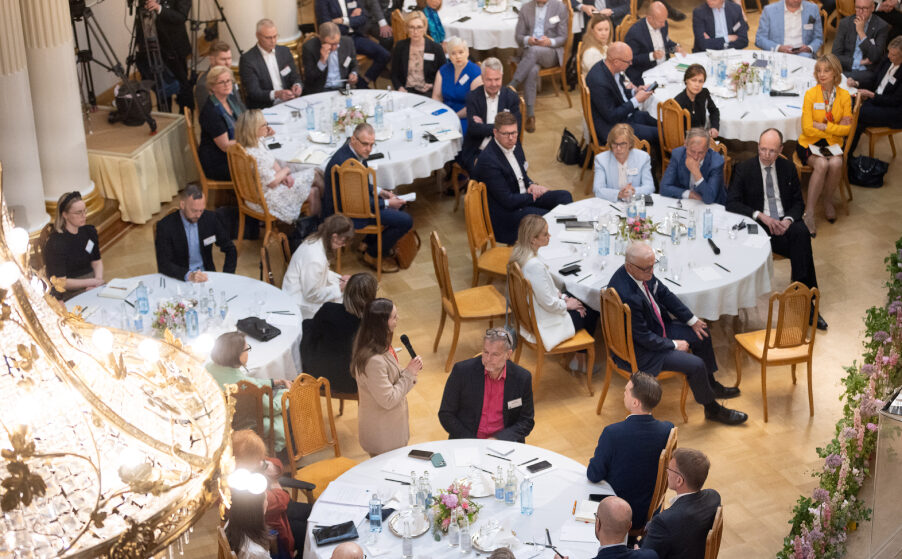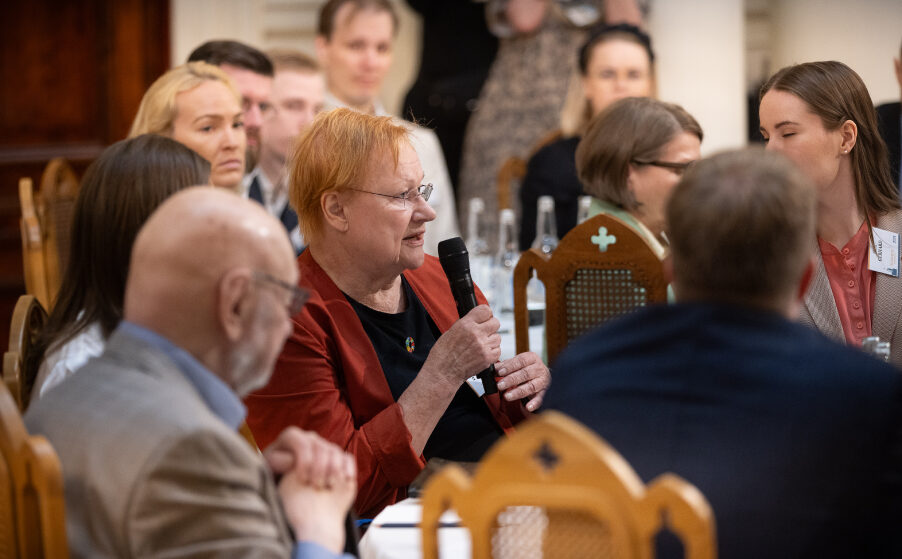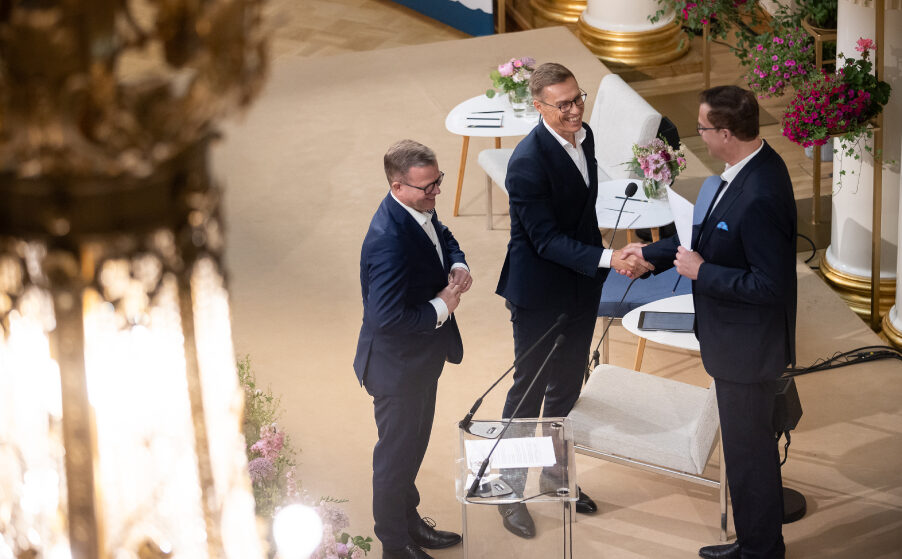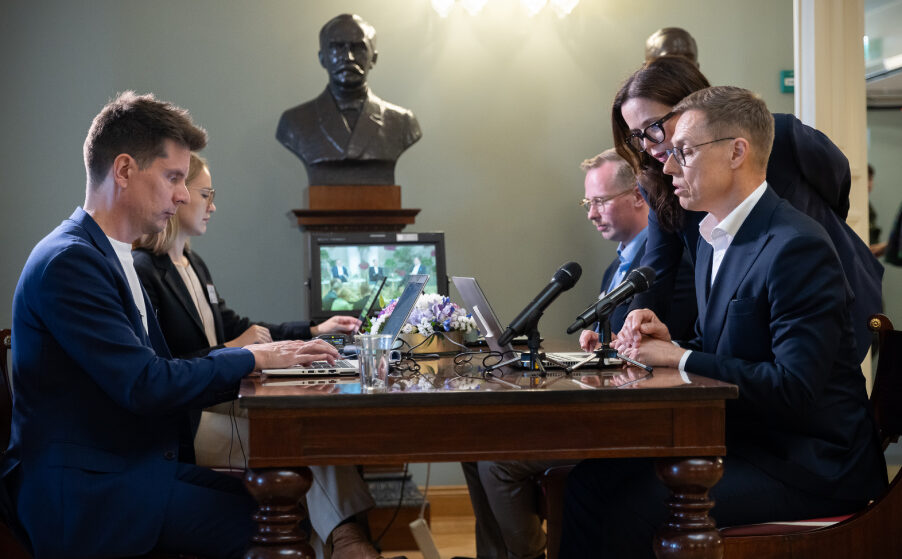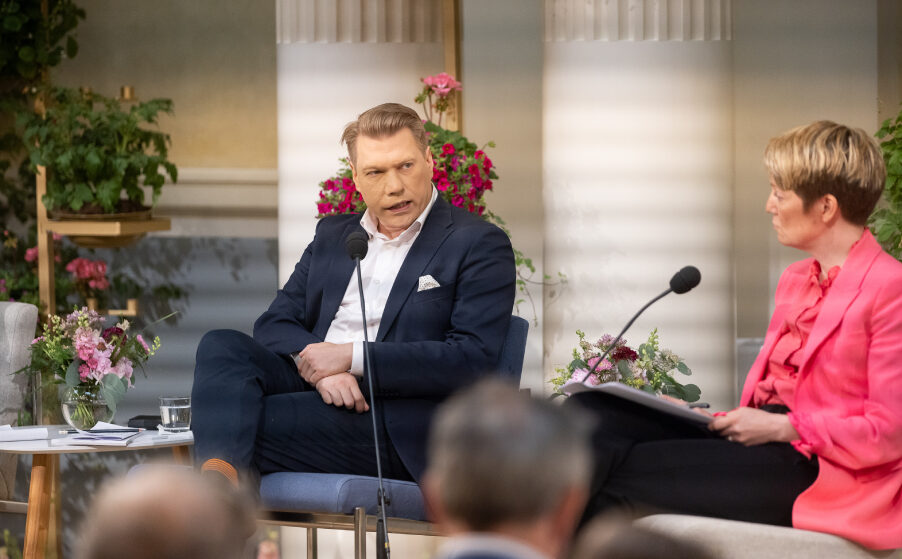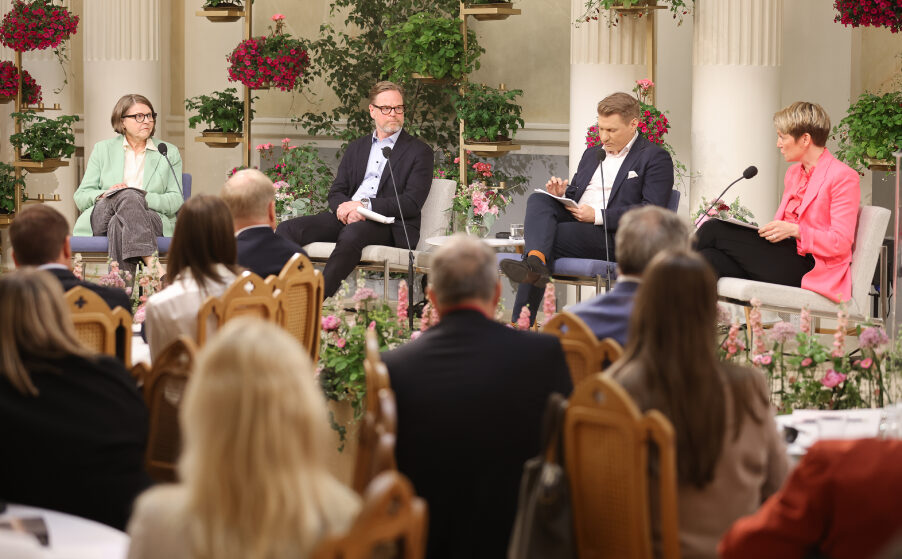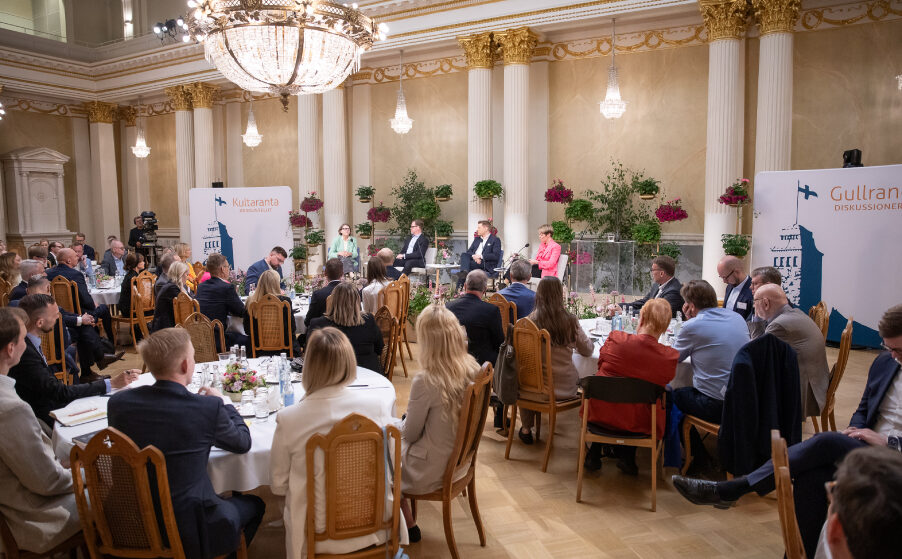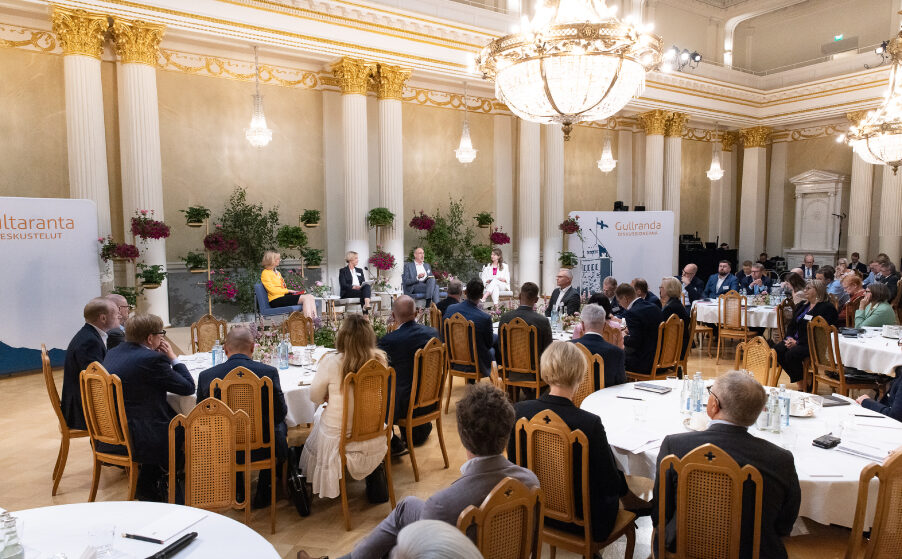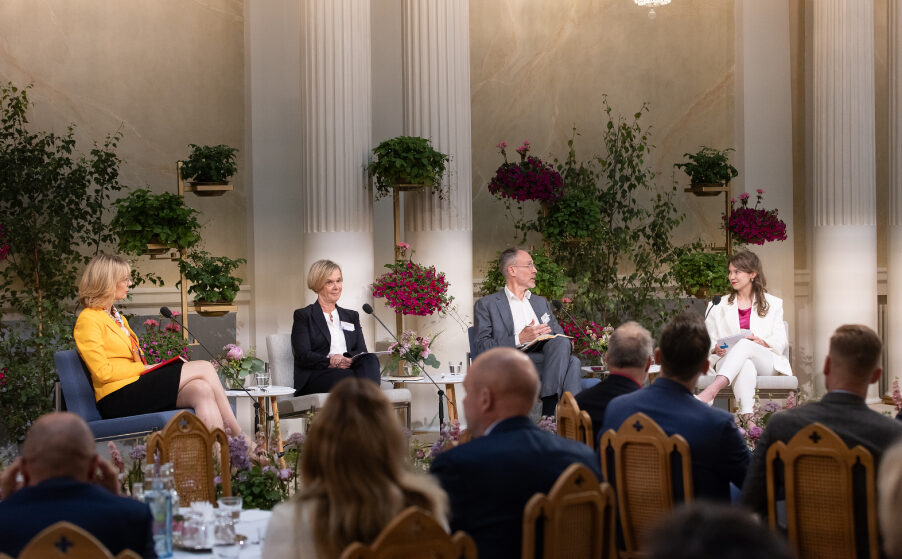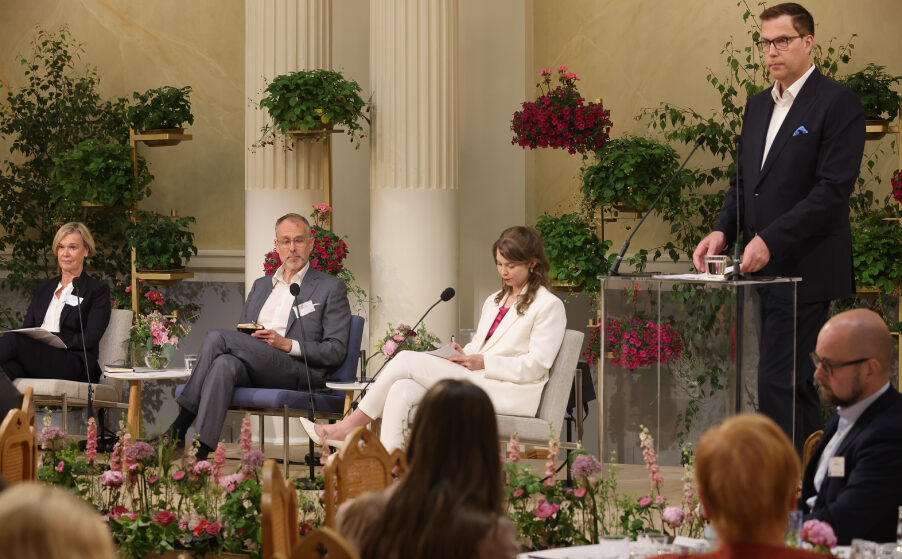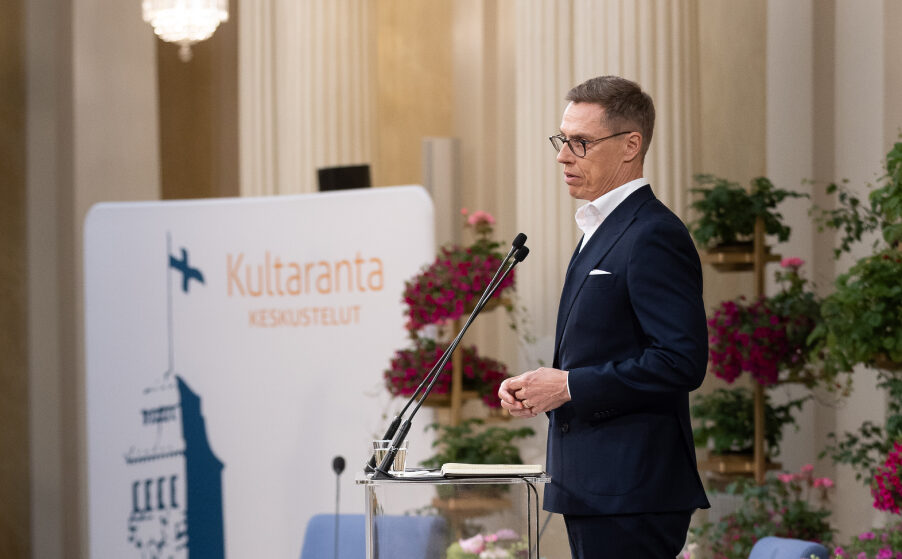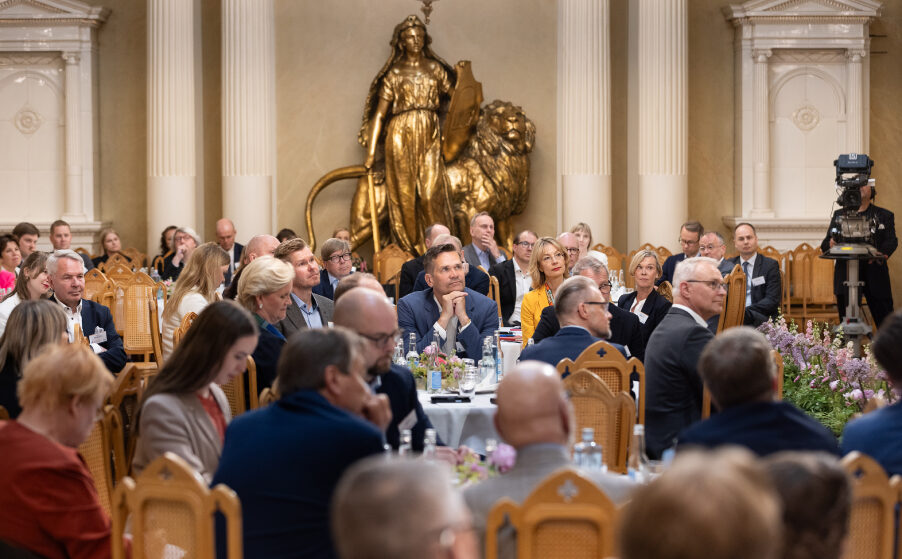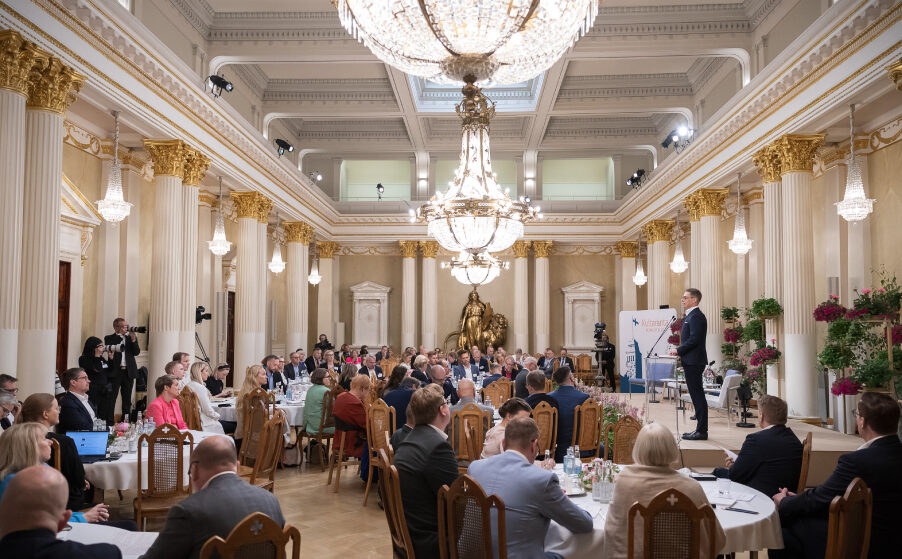The Kultaranta Talks 2024, hosted by President of the Republic of Finland Alexander Stubb, kicked off on 13 June in the Presidential Palace in Helsinki.
In his welcome remarks, President Stubb said he looked forward to an open debate: “Foreign and security policy cannot be secret science, but part of an open social debate, especially now, when the global political situation is tense.”
In the opening debate of the day, President Stubb and Dutch Prime Minister Mark Rutte discussed with Peter Wolodarski, Editor-in-chief of the Swedish daily newspaper Dagens Nyheter, the role of Europe in the changed world order.
“The EU has to play its cards right to compete, which means we have to maintain dialogue and not provoke, but we have to be firm on certain key issues,” said President Stubb.
According to the President, emerging regional powers such as India, Indonesia and Saudi Arabia are crucial to where the world is going.
“They don’t want to choose between East and West, they want their own space to act globally,” the President said.
Cooperation even on small common denominators
The second debate on Thursday featured Finnish Foreign Minister Elina Valtonen, Lithuanian Foreign Minister Gabrielius Landsbergis and Norwegian Foreign Minister Espen Barth Eide. The discussion was moderated by Richard Milne, Nordic and Baltic correspondent at the Financial Times.
The Foreign Ministers discussed the political situation in Europe after the European elections and, whether European unity is more difficult to maintain than before. According to the Foreign Ministers, Europe should not be get stuck on the idea of unanimity. Instead, even small common denominators should be found and build upon.
“The EU’s decision-making process needs to be changed so that it can cope with different opinions, because in a democracy you cannot demand that everyone agrees,” said Foreign Minister Elina Valtonen.
Europe in the eyes of the rest of the world
The panelists of the third and final debate of the day were Polish Foreign Minister Radosław Sikorski, Latvian Foreign Minister Baiba Braže and Olli Rehn, Governor of the Bank of Finland Governor .
The moderator was Comfort Ero, President and CEO of the International Crisis Group. The debate focused in particular on Europe’s global relations.
According to Olli Rehn, Europe has helped hundreds of millions of people out of poverty through trade agreements.
“But agreements were only the second best option. We would have liked to work through the World Trade Organisation, but we saw that this no longer works.”
Polish Foreign Minister Radoslaw Sikorski pointed out that Europe is the envy of the world.
“We’re in Helsinki. In many ways, Scandinavia is the best place in the world to live. The question is whether we can maintain this.”
Finland facing a new era
On Friday 14 June, the event continued with a debate between President Stubb and Prime Minister Petteri Orpo on Finland facing a new era.
The second discussion of the day dealt with Finland as part of the Global West. The topic was addressed by Heidi Hautala, Vice-President of the European Parliament, Janne Kuusela, Director General of the Defence Policy Department of the Ministry of Defence, and Timo Miettinen, Academy Research Fellow at the University of Helsinki. The moderator of the debate was Katri Makkonen, Senior Advisor at Miltton Oy.
The last debate addresses the issue of Finland as a global partner. The panellists were Leena-Kaisa Mikkola, Ambassador of the Embassy of Finland to Beijing, Tytti Tuppurainen, Chair of the Social Democratic Parliamentary Group and Janne Taalas, Chief Executive Officer at CMI – Martti Ahtisaari Peace Foundation. The moderator of the discussion was Annastina Haapasaari, Editor-in-Chief of the online magazine The Ulkopolitist.
This year, around 100 participants from various sectors of society were invited to the event. Participants included national and international policymakers, researchers, representatives of public administration, trade and industry, civil society organisations and the media.
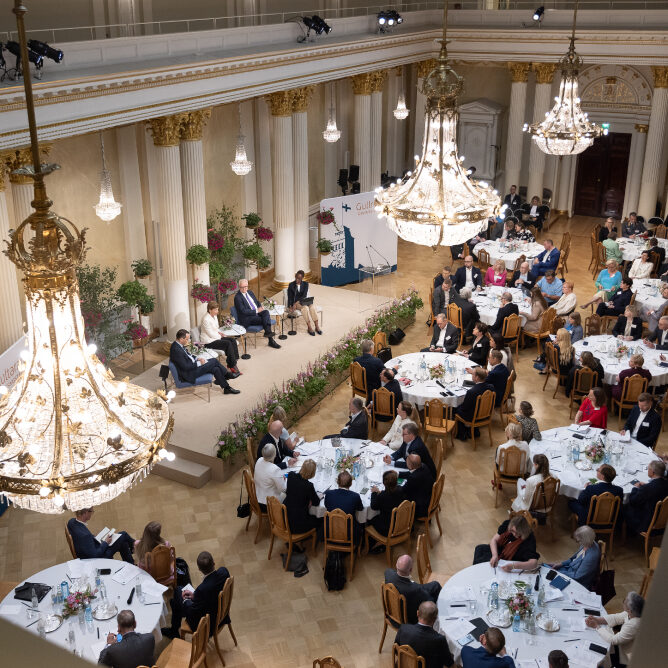
Participants of the Kultaranta Talks 2024
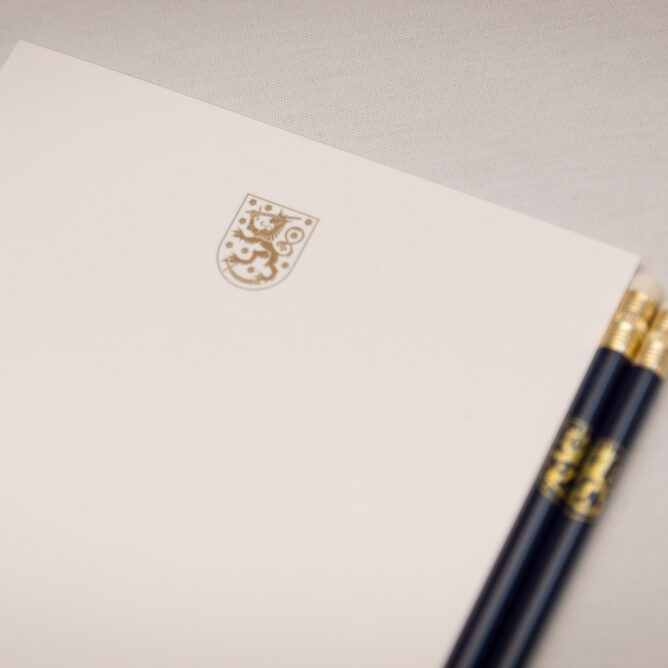
Programme of the Kultaranta Talks 2024
